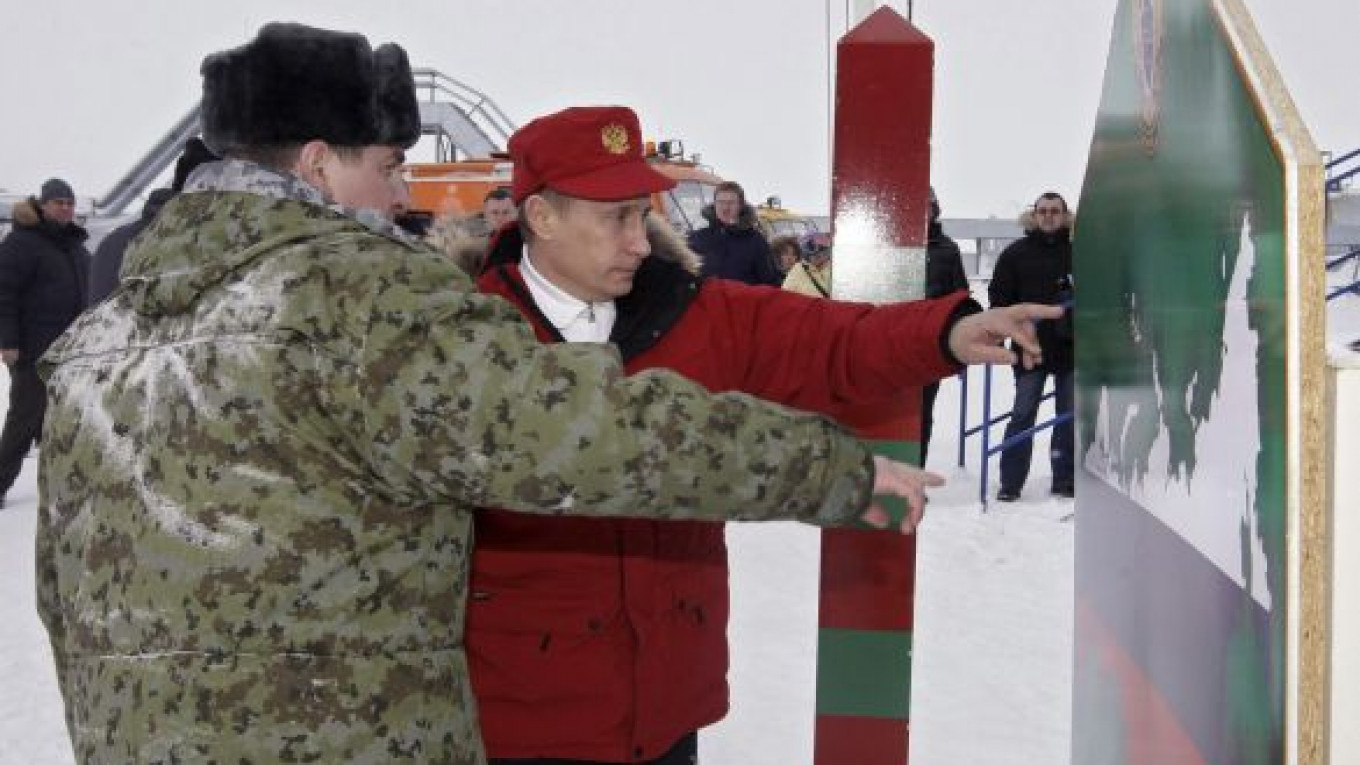Both scientists and soldiers will be heading to Russia’s most northerly outposts this summer as the country reinforces both its military and scientific presence in the region.
A research vessel carrying 40 scientists and support staff will put out from Arkhangelsk next month on a voyage to the country’s newest national park in Novaya Zemlya and Franz Josef Land.
Meanwhile, Air Force commanders attached to the Western Military District have said they will reopen Soviet-era bases in the area.
The two-week scientific expedition aboard the Professor Molchanov, including researchers from the Natural Resources and Environment Ministry and the World Wildlife Fund, will set out to study conditions in the Russian Arctic National Park.
The park was established in 2009 and takes in vast swathes of the northern end of Novaya Zemlya and the Franz Josef Archipelago — Russia’s most northerly territory.
Park director Roman Yershov, who is based in Arkhangelsk, said the year-round presence of researchers and security staff in the area would begin this year.
“We’re still putting in the infrastructure that will allow us to have a year-round presence and open it up for science and tourism,” he told The Moscow Times.
The park is one of three protected areas targeted by a $620 million cleanup effort announced last October. Both archipelagoes were closed military zones during the Cold War — Novaya Zemlya was a nuclear testing ground — and a “spring cleaning” expedition to Franz Josef Land last year counted about 400,000 fuel barrels and 700 tanks of gasoline and lubricants scattered across the archipelago.
But the military presence is set to return. The Air Force announced last week that it would begin operating out of reopened Soviet-era bases in Novaya Zemlya and Naryan-Mar later this summer.
“I think next year, with success moving forward, we will be able to finish the aerodrome on Franz Josef Land,” Western Military District aviation commander Igor Makushev told Interfax last week.
Meanwhile, researchers will be repeating an experiment to count Atlantic walrus populations using satellite photos.
A pilot program successfully captured images of the mammals at colonies on three islands last summer.
ScanEx, a Moscow-based research firm specializing in satellite imaging, plans to widen the search to photograph walrus breeding grounds stretching from Wrangel Island in the East Siberian Sea to Franz Josef Land in the Barents Sea in order to glean a better idea of the poorly understood population.
Last week the Professor Molchanov set off on its first voyage of the season, carrying students and teachers from the Northern Federal University, the first such “floating university” expedition in Arctic waters.
Norway’s only submarine base north of the Arctic Circle, Olavsvern, has been for sale since January 2011, and now it is listed on Norway’s most popular open-market website, the Barents Observer reported last week.
The base consists of 13,500 square meters of buildings and a 25,000-square-meter mountain plant, including a large dock and a deep-water berth. Included in the facilities are a fuel depot, a tunnel system and emergency power system. The facility is designed to withstand a nuclear attack.
It is selling for 105 million Norwegian krone ($17.23 million).
A Message from The Moscow Times:
Dear readers,
We are facing unprecedented challenges. Russia's Prosecutor General's Office has designated The Moscow Times as an "undesirable" organization, criminalizing our work and putting our staff at risk of prosecution. This follows our earlier unjust labeling as a "foreign agent."
These actions are direct attempts to silence independent journalism in Russia. The authorities claim our work "discredits the decisions of the Russian leadership." We see things differently: we strive to provide accurate, unbiased reporting on Russia.
We, the journalists of The Moscow Times, refuse to be silenced. But to continue our work, we need your help.
Your support, no matter how small, makes a world of difference. If you can, please support us monthly starting from just $2. It's quick to set up, and every contribution makes a significant impact.
By supporting The Moscow Times, you're defending open, independent journalism in the face of repression. Thank you for standing with us.
Remind me later.






